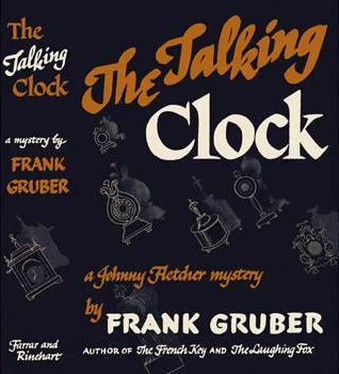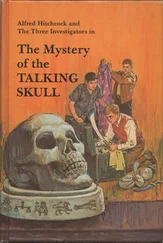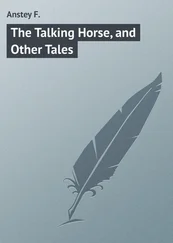“No,” said Johnny. “It was stolen last night from the Quisenberry house.”
Disappointment swept across the importer’s olive face. “But I am reading that in the paper. I t’ink maybe you…”
“Why should you think we stole it?”
“But you are what you call — ex-gonvic’. I am seeing you yesterday and this morning when I am reading in the paper, I t’ink, they have stolen the clock, those gonvic’s…”
“I figured you for the burglar,” Johnny said bluntly.
“And I’m not an ex-convict,” Sam added.
“Oh! I am so sorry. But Meesus Queesenberry, she say…”
“Since I’m a gentleman,” said Johnny, “I can’t say anything against a lady. Except that Mrs. Quisenberry reminds me of a clip-joint taxi dancer who picked my pocket one time.”
“Ah, then you don’t having the clock?”
“That’s the general idea, Mr. Bos. I came here to get some information about that clock. What makes it worth so much money?”
“Because is Talking Clock.”
“I could have a small phonograph made and put in a Simple Simon clock for a hundred bucks. It would talk and it wouldn’t be worth a lot of money.”
“Ah, but this clock is very, very old. Three hundred year. Four hundred—”
“Going at five,” chimed in Sam Cragg.
“Five? No. Not that old. Is beautiful work. Fine engraving and the jewel… worth much money alone.”
“Melted down, how much would it bring?”
“Melted down?” Horror popped wide Bos’ eyes. “You would not melt down this beautiful clock, Mister. Oh no. Don’t doing that!…”
“I’m not melting it down. I haven’t got the clock. I’m just trying to get an idea how much the thing’d be worth as old gold…”
“Old gold? Oh, not much. The jewels, yes, are worth maybe five t’ousand dollar. But I giving fifty t’ousand—”
“You said seventy-five yesterday.”
“That’s right. I give you seventy-five t’ousand dollar for the clock.”
“You ought to hire a detective to locate it, Mr. Bos.”
“A detective? A policeman?…”
“No, a private detective. There’s a lot of them, you know. They work for you, not the city. You could get an awfully good man… for about a hundred bucks a day, with a small bonus when he finishes…”
“You know good detective?”
Johnny spread out his hands and looked at them, modestly. “I’ve had some good results as a detective. You know, I returned the clock to Diana Rusk, after locating it in Ohio…”
“Yes, I am hearing. Ha! I do it. I hiring you find the Talking Clock. You bring him to me and I give you beeg bonus… Maybe ten t’ousand dollar.”
“And the hundred dollars a day.”
Bos frowned a moment, then beamed. “Fine, I also paying that. How many day you t’ink it take?”
“Not more than five or six… if I’m lucky.”
“Is fine. I am hiring you.”
“How about a couple of days’ pay in advance? It’s customary. Sort of retainer, you know…”
The sponge importer took a long, flat wallet from his inside breast pocket and skinned out two bills. Each was a hundred-dollar denomination.
He showed even, white teeth in a wide smile. “You are sport, Mister Fletcher? Tossing coin, double or nothing?”
“Nix, Johnny,” Sam Cragg said out of the side of his mouth.
Bos took a half dollar from his pocket. “You call?…”
“Tails,” said Johnny.
Bos flipped the coin into the air, caught it and smacked it on the back of his left hand. He uncovered it. “Heads, sorry…”
Sam groaned. “Looks like I’ve got to save the day, now…” He drew out his pack of cards from his pocket. “How much change we got, Johnny? We’ll cut Mr. Bos high card for it. Huh?…” He half turned his face and winked at Johnny.
Johnny looked thoughtfully at Sam for a moment, then he drew out all the money they had in the world. He counted out fifty dollars and put two dollars and some silver back into his pocket.
“We’ll cut you high card for fifty dollars, Mr. Bos.”
“Why not?”
Sam riffled the cards, squared them and slapped the deck on the importer’s desk.
Bos placed his hand over the cards, pressed down on them and cut. He held up the ace of spades.
Sam exclaimed in horror and a shudder seemed to run through his body.
“Go ahead and cut,” Johnny said coldly. “Maybe you can get an ace yourself and tie.”
“Sure,” said Nicholas Bos, cheerfully.
Sam’s trembling hand fumbled with the remaining cards. Finally he picked up part of them and revealed the three of diamonds.
“You win,” he said, thickly.
“Some fun, yes?” Bos smiled fondly. “You coming my apartment some time and playing poker. I like gamble.”
“So do we,” said Johnny, glaring at Sam Cragg.
When they reached the street, Johnny caught Sam’s arm in a savage grip. “You sap! What’d you have to pull out those cards for?”
“Because they’re stripped, Johnny!” gasped Sam. “I… I fixed them, so I could cut the ace myself and he beat me to it.”
“Why, the dirty—!” Johnny swore. “He outslicked us all around. I didn’t like that coin toss of his.”
“Neither did I. I was reading in my book about tossing coins and there’re six or seven ways you can beat a man. That’s… that’s why I tried the card cutting.”
Johnny pulled out the remainder of their stake and gave Sam one of the crumpled bills. “Not enough for us both to run out to Hillcrest. You’ll have to stay in town. Here’s some money for grub. Go easy.”
Sam was too crestfallen to protest over Johnny’s going out to Hillcrest. He merely asked, weakly: “When’ll you be back?”
“When you see me,” Johnny snapped. “You might run over to Mort’s and get some more books—”
“Ouch!” cried Sam. “We promised to bring him some money today.”
“You lost the money. You and your card tricks. Tell that to Mort. And you might show him the rest of your tricks. Carmella, too, if he comes around while you’re there… So long, Sam…”
Johnny headed for the subway toward which they had been walking.
When Johnny got to the Grand Central Terminal he discovered that the Hillcrest train had just left and that the next did not go for an hour and twenty minutes. Annoyed, he went to the battery of telephone booths and looked in the classified phone directory. After a moment, he nodded in satisfaction and left the station.
On Lexington Avenue he caught a north-bound bus and rode to 60th Street. He swung off there and walked back a little way to a shop that had a depressed window, completely filled with clocks. He stepped down the few stairs to the door of the shop and pushed it open.
The ticking of a hundred clocks hit his ears. An elderly man with a white goatee and a black skull cap greeted him from behind a long counter filled with clocks.
“Mr. McAdam?” Johnny said. “I’m from the Daily Blade. I’m doing a story on clocks and I’ve heard that you’re the foremost authority on them in New York. I thought perhaps you might give me a bit of information…”
“On clocks, sir? of course. I presume Quisenberry’s Talking Clock prompted this sudden clock interest, Mr. — ?”
“Fletcher. And you’re quite right, Mr. McAdam. My city editor suggested the clock story. He didn’t seem to believe that the Quisenberry clock was as valuable as the family claimed.”
McAdam shrugged. “A clock is worth whatever the seller can get. Just like a stamp or a rare coin. I’ve seen Quisenberry’s clock. It is undoubtedly an authentic example of early sixteenth century workmanship. According to the history of the clock, it was made in Seville for Queen Isabella…”
Читать дальше


![Корнелл Вулрич - Eyes That Watch You [= The Case of the Talking Eyes]](/books/32103/kornell-vulrich-eyes-that-watch-you-the-case-of-thumb.webp)









